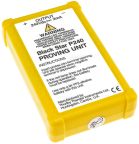
Black Star
2 Products showing for Black Star
1 of 1
In Stock
- RS Stock No. 242-4111
- Mfr. Part No. P240
- Brand Black Star
- Product Type Proving Unit
- Test Current Rating -
- Kit Contents -
- Output Voltage 240 V
Subtotal (1 unit)
£74.96(exc. VAT)
Temporarily out of stock
- RS Stock No. 375-5337
- Mfr. Part No. P240
- Brand Black Star
- Product Type Proving Unit
- Test Current Rating -
- Kit Contents -
- Output Voltage 240 V
Subtotal (1 unit)
£116.96(exc. VAT)
Results per page
